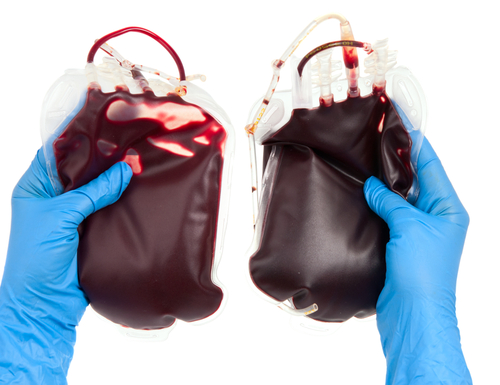Nigeria’s Blood Supply Lags Behind Other African Countries
It’s the most important fluid in the human body – every living cell…

It’s the most important fluid in the human body – every living cell depends on it. Demand for it is always high; there’s never enough. There’s only one source of supply, and there’s no substitute. It’s used up faster than it can be replenished, especially in times of crisis.
That precious fluid is human blood. Humans are the only source of supply. Despite intense effort, no substitute has been developed. Blood transfusion services are challenged to come up with an adequate supply while ensuring quality and safety. Millions who need blood do not have access to it. Recent and multiple terrorist attacks in Nigeria underscore the need for quality and sufficient blood units.

Currently, there are three types of donors: 1) voluntary, 2) family replacement, 3) paid “donors.” Blood collected from voluntary and family replacement (relatives recruited for replenishment for blood used) is tightly regulated and safe for both recipients and donors. Blood from paid donors, however, is substantially inferior in both the quality of the blood cells and presence of infection.
Paid donors often continue selling blood when their own blood is already depleted lower than the intended recipients. Deaths occur when paid donors sell so much that they don’t have enough blood left to sustain life. Since the blood is dilute in the donor; several units are necessary to supply the same blood components as one unit from a voluntary donor.
The World Health Organization (WHO), the International Federation of Red Cross and Red Crescent Societies are developing a global framework for the collection, management, and distribution of blood from voluntary donors. Their vision is 100 percent voluntary donation by 2020, for a safe, sustainable, blood supply, while phasing out the family replacement and paid donors.
Nigeria lags behind other African countries in establishing its framework for ensuring donor and recipient safety, and sufficient, safe, blood and blood products. Only 5 percent of the blood supply in Nigeria is obtained by voluntary donation. The percent supplied by family replacement was not disclosed, but the vast majority of blood is collected from paid donors.
Blood has an essential lifesaving role in maternal and prenatal care. The World Health Organization reported that in 2010, Nigeria recorded 50,000 maternal deaths, second only to India in maternal mortality. Severe bleeding during delivery and after childbirth is the major cause. According to the WHO, 25 percent of maternal deaths are due to a lack of blood.
The WHO also reports:
- 15 percent of child mortality is attributed to an inadequate blood supply
- A population should maintain a supply of 10 units of blood per 1000 people. Nigeria has 0.2 units per 1000 people.
- 42 African countries are not able to screen all blood donations for the 4 infectious diseases for which the WHO states all blood should be screened: HIV, Hepatitis B, Hepatitis C, and syphilis.
- If only 1 percent of a country’s population donated blood consistently, it would be sufficient to maintain an adequate supply.
- In 77 African countries, less than 1 percent of the population donates blood.
- 5 to 10 percent of cases of HIV/Aids can be attributed to receiving contaminated blood.

The Nigerian National Blood Transfusion Service (NBTS) was established to provide Nigerians with safe, quality and adequate blood. You can play a vital role in supporting their mission by being a consistent, voluntary blood donor. To learn more about where to donate blood in Nigeria and other related questions, please visit the NBTS website especially the Frequently Asked Question (FAQ) page.
Have you donated or considered donating blood in Nigeria? Have you received donated blood? Either way, please join the conversation and share your experience(s) with us.

